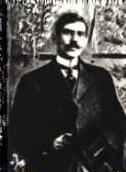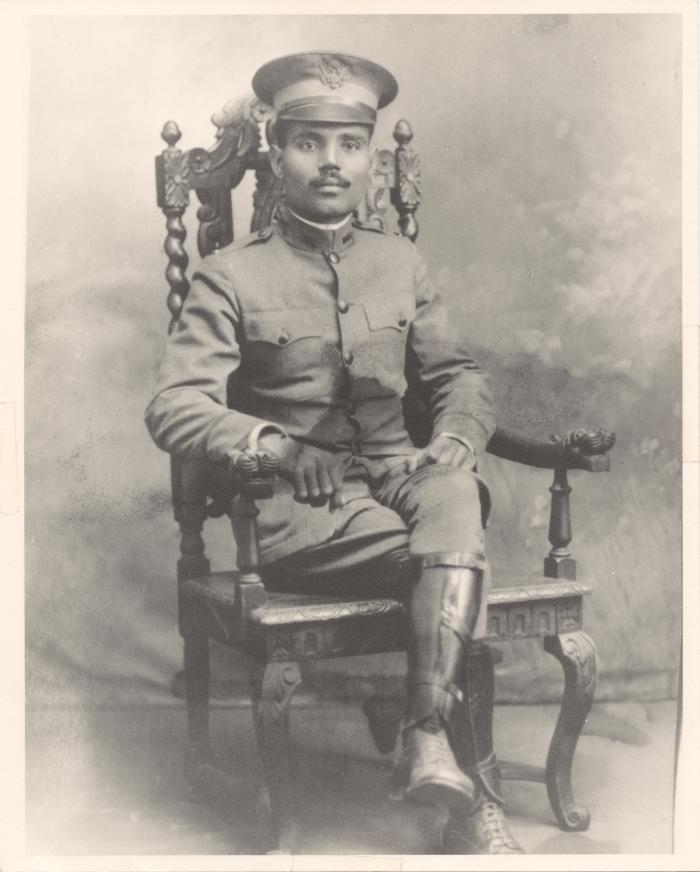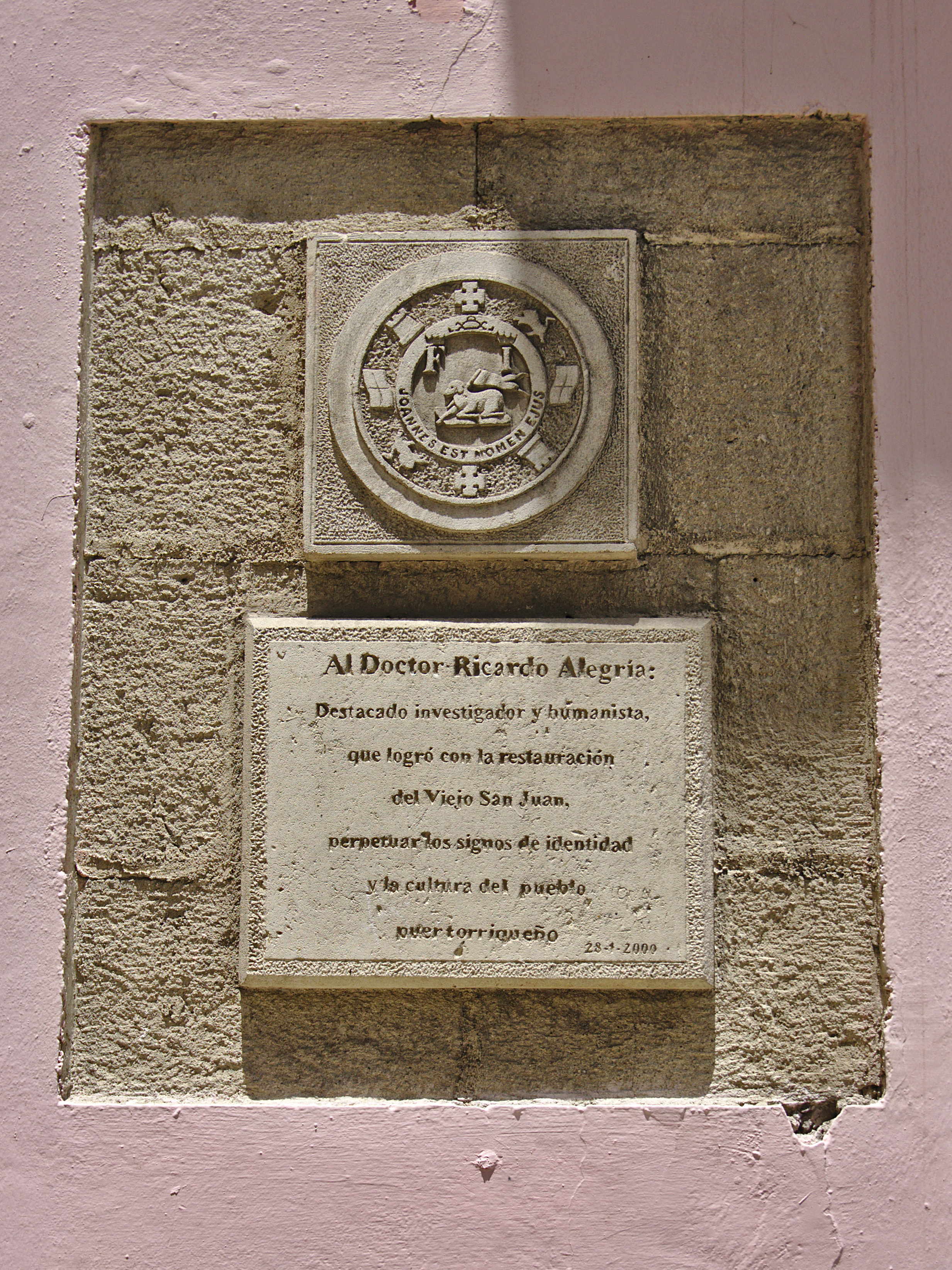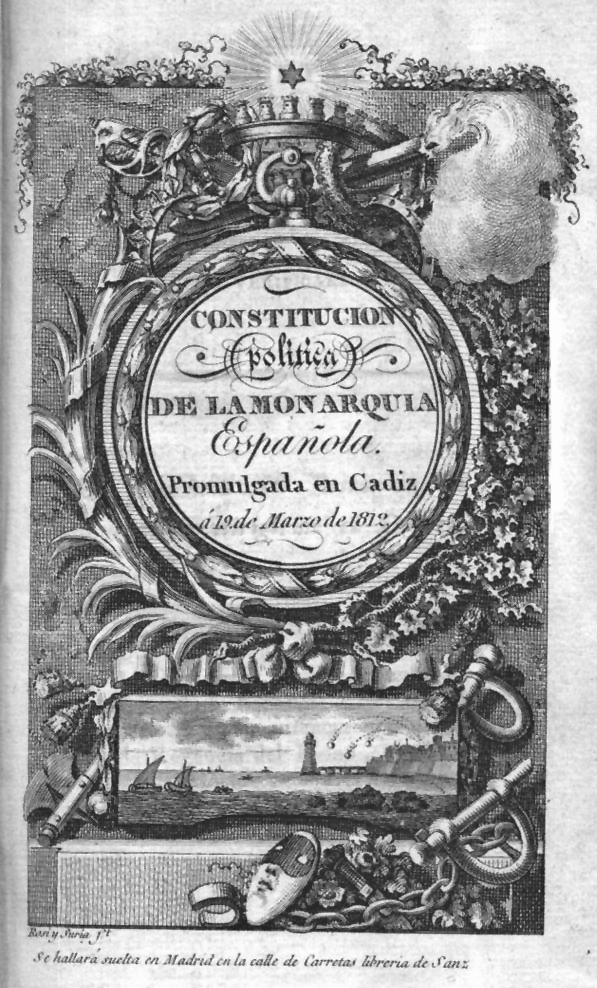|
Cayetano Coll Y Cuchí
Cayetano Coll y Cuchí (June 21, 1881 – 1961) was a politician, writer and an advocate of Puerto Rican Independence. In 1917, he became the first President of Puerto Rico House of Representatives after the island was ceded to the United States by Spain as a result of the Spanish–American War. Coll y Cuchí was a member of a prominent family of Puerto Rican politicians, writers and educators.see: "Notable family members" section Early years Coll y Cuchi was born in Arecibo, Puerto Rico. His father was Cayetano Coll y Toste, a historian who in 1913 was named the "Official Historian of Puerto Rico" and his mother Adela, was the daughter of José Cuchi y Arnau former mayor of Arecibo. His family sent him to private schools for his primary and secondary education. Coll y Cuchi began his university education at the University of Barcelona. In 1910, he earned his law degree from a college in Washington, D.C.. After he earned his degree he returned to the island and established his la ... [...More Info...] [...Related Items...] OR: [Wikipedia] [Google] [Baidu] |
Arecibo, Puerto Rico
Arecibo (; ) is a city and municipality on the northern coast of Puerto Rico, on the shores of the Atlantic Ocean, located north of Utuado and Ciales; east of Hatillo; and west of Barceloneta and Florida. It is about west of San Juan, the capital city. Arecibo is the largest municipality in Puerto Rico by area, and it is the core city of the Arecibo Metropolitan Statistical Area and part of the greater San Juan Combined Statistical Area. It is spread over 18 ''barrios'' and Arecibo Pueblo (the downtown area and the administrative center of the city). Its population in 2020 was 87,754. The Arecibo Observatory, which housed the Arecibo telescope, the world's largest radio telescope until July 2016, is located in the municipality. The Arecibo telescope collapsed on December 1, 2020. Arecibo is the seat of the Roman Catholic Diocese of Arecibo. Etymology and nicknames The name ''Arecibo'' comes from the Taíno chief Xamaica Arasibo, cacique of the ''yucayeque'' (Taíno ... [...More Info...] [...Related Items...] OR: [Wikipedia] [Google] [Baidu] |
Cayetano Col Y Cuchi
Cayetano is a Spanish and sometimes Sephardic Jewish name related to the Italian name Gaetano (English: ''Cajetan''), both from Latin ''Caietanus'', meaning "from Gaeta". It is a common given name in Spain, Mexico, Argentina and the Philippines. As a surname, it is also found predominantly in those countries, as well as Peru. The feminine version of the name is Cayetana. People Given name * Saint Cajetan, Italian Catholic priest and religious reformer * Cayetano (Giorgos Bratanis), Greek musician * Cayetano Apablasa (1847–1889), American land owner and politician * Cayetano Arellano (1847–1920), Chief Justice of the Supreme Court of the Philippines * Cayetano Biondo (1902–1986), Argentine film actor * Cayetano Carpio (1918–1983), leader of the Communist Party of El Salvador * Cayetano Coll y Cuchí (1881–1961), Puerto Rican politician * Cayetano Coll y Toste (1850–1930), Puerto Rican historian and writer * Cayetano Cornet (b. 1963), Spanish athlete * Cayetano Corona Ga ... [...More Info...] [...Related Items...] OR: [Wikipedia] [Google] [Baidu] |
Pedro Albizu Campos
Pedro Albizu Campos (September 12, 1891Luis Fortuño Janeiro. ''Album Histórico de Ponce (1692–1963).'' p. 290. Ponce, Puerto Rico: Imprenta Fortuño. 1963. – April 21, 1965) was a Puerto Rican attorney and politician, and the leading figure in the Puerto Rican independence movement. Gifted in languages, he spoke six. He graduated from Harvard Law School with the highest grade point average in his law class, an achievement that earned him the right to give the valedictorian speech at his graduation ceremony. However, animus towards his mixed racial heritage led to his professors delaying two of his final exams in order to keep Albizu Campos from graduating on time. During his time at Harvard University he became involved in the Irish struggle for independence.''Boston Daily Globe'', November 3, 1950.Marisa Rosado, Pedro Albizu Campos: Las Llamas de la Aurora (San Juan, PR: Ediciones Puerto, Inc., 2008), p. 71. Albizu Campos was the president and spokesperson of the Natio ... [...More Info...] [...Related Items...] OR: [Wikipedia] [Google] [Baidu] |
Ricardo Alegría
Ricardo E. Alegría Gallardo (April 14, 1921 – July 7, 2011) was a Puerto Rican scholar, cultural anthropologist and archaeologist known as the "father of modern Puerto Rican archaeology". Early years Alegría was born in San Juan, Puerto Rico where he received his primary and secondary education. His father, José S. Alegría, was a former vice president and founding member of the Puerto Rican Nationalist Party. It was Alegría's father who instilled in him a sense of love and pride for Puerto Rico, its history, and culture. In 1941 at the University of Puerto Rico, together with Yamil Galib, Alegría founded a new fraternity, Alpha Beta Chi. In 1942, Alegría earned his Bachelor of Science degree in archeology from the University of Puerto Rico. He continued his academic education in the University of Chicago where in 1947 he earned his master's in Anthropology and History. In 1954, Alegría earned his Ph.D (doctorate) in Anthropology from Harvard University. Legacy and d ... [...More Info...] [...Related Items...] OR: [Wikipedia] [Google] [Baidu] |
José S
José is a predominantly Spanish and Portuguese form of the given name Joseph. While spelled alike, this name is pronounced differently in each language: Spanish ; Portuguese (or ). In French, the name ''José'', pronounced , is an old vernacular form of Joseph, which is also in current usage as a given name. José is also commonly used as part of masculine name composites, such as José Manuel, José Maria or Antonio José, and also in female name composites like Maria José or Marie-José. The feminine written form is ''Josée'' as in French. In Netherlandic Dutch, however, ''José'' is a feminine given name and is pronounced ; it may occur as part of name composites like Marie-José or as a feminine first name in its own right; it can also be short for the name ''Josina'' and even a Dutch hypocorism of the name ''Johanna''. In England, Jose is originally a Romano-Celtic surname, and people with this family name can usually be found in, or traced to, the English county of C ... [...More Info...] [...Related Items...] OR: [Wikipedia] [Google] [Baidu] |
Puerto Rican Nationalist Party
The Nationalist Party of Puerto Rico ( es, Partido Nacionalista de Puerto Rico, PNPR) is a Puerto Rican political party founded on September 17, 1922, in San Juan, Puerto Rico. Its primary goal is to work for Puerto Rico's independence. The Party's selection in 1930 of Pedro Albizu Campos as its president brought a radical change to the organization and its tactics. In the 1930s, intimidation, repression and persecution of Party members by the government, then headed by a U.S. president-appointed governor, led to the assassination of two government officials, the attempted assassination of a federal judge in Puerto Rico, and the Rio Piedras and Ponce massacres. Under the leadership of Albizu Campos, the party abandoned the electoral process in favor of direct armed conflict as means to gain independence from the United States. By the late 1940s, a more US-friendly party, the ''Partido Popular Democrático'' ( PPD), had gained an overwhelming number of seats in the legislatu ... [...More Info...] [...Related Items...] OR: [Wikipedia] [Google] [Baidu] |
Independence Association Of Puerto Rico
The Independence Association of Puerto Rico (Asociación Independentista) was a political organization whose members favored Puerto Rican independence and which played an important role in the formation of the Puerto Rican Nationalist Party. History In 1920, Dr. Leopoldo Figueroa became disillusioned with the Union Party of Puerto Rico's leadership and together with José S. Alegría (father of Ricardo Alegría) and Eugenio Font Suárez co-founded the Independence Association (Asociación Independentista). José Coll y Cuchí, who belonged to the Union Party of Puerto Rico, felt that the Union Party was not doing enough for the cause of Puerto Rican independence and together with his followers quit the party and founded the Nationalist Association of Puerto Rico (Asociación Nacionalista de Puerto Rico) in San Juan in 1919. El Nue ... [...More Info...] [...Related Items...] OR: [Wikipedia] [Google] [Baidu] |
Juan Bernardo Huyke
Juan Bernardo Huyke Bozello (June 11, 1880 – December 17, 1961) served as acting governor of Puerto Rico several months in 1923. Background Huyke was born in Arroyo, Puerto Rico on June 11, 1880. He was the son of Don Enrique Huyke and Doña Carmen Bozello. His father, who was a principal of a school in Arroyo, named Huyke after his grandfather (Bernardo H. Huyke) who lived with family on the island of Curaçao in 1891. At the age of 21 Juan Bernardo Huyke began his career as an English teacher at a school in Arroyo. He was an attorney, writer, publisher, educator, and statesman. He served as Puerto Rico's Superintendent of Schools from 1908 until 1910. As superintendent, he was one of the first people to promote bilingual education. Huyke Bozello was president of the American Red Cross in Puerto Rico. He served in the Puerto Rico House of Representatives from 1912 to 1920, and became Commissioner of Public Instruction in 1921 until 1930. For several months in 1923, Hu ... [...More Info...] [...Related Items...] OR: [Wikipedia] [Google] [Baidu] |
Woodrow Wilson
Thomas Woodrow Wilson (December 28, 1856February 3, 1924) was an American politician and academic who served as the 28th president of the United States from 1913 to 1921. A member of the Democratic Party, Wilson served as the president of Princeton University and as the governor of New Jersey before winning the 1912 presidential election. As president, Wilson changed the nation's economic policies and led the United States into World War I in 1917. He was the leading architect of the League of Nations, and his progressive stance on foreign policy came to be known as Wilsonianism. Wilson grew up in the American South, mainly in Augusta, Georgia, during the Civil War and Reconstruction. After earning a Ph.D. in political science from Johns Hopkins University, Wilson taught at various colleges before becoming the president of Princeton University and a spokesman for progressivism in higher education. As governor of New Jersey from 1911 to 1913, Wilson broke with party bosse ... [...More Info...] [...Related Items...] OR: [Wikipedia] [Google] [Baidu] |
Citizenship
Citizenship is a "relationship between an individual and a state to which the individual owes allegiance and in turn is entitled to its protection". Each state determines the conditions under which it will recognize persons as its citizens, and the conditions under which that status will be withdrawn. Recognition by a state as a citizen generally carries with it recognition of civil, political, and social rights which are not afforded to non-citizens. In general, the basic rights normally regarded as arising from citizenship are the right to a passport, the right to leave and return to the country/ies of citizenship, the right to live in that country, and to work there. Some countries permit their citizens to have multiple citizenships, while others insist on exclusive allegiance. Determining factors A person can be recognized or granted citizenship on a number of bases. Usually, citizenship based on circumstances of birth is automatic, but an application may be required. ... [...More Info...] [...Related Items...] OR: [Wikipedia] [Google] [Baidu] |
Jones–Shafroth Act
The Jones–Shafroth Act () —also known as the Jones Act of Puerto Rico, Jones Law of Puerto Rico, or as the Puerto Rican Federal Relations Act of 1917— was an Act of the United States Congress, signed by President Woodrow Wilson on March 2, 1917. The act superseded the Foraker Act and granted U.S. citizenship to anyone born in Puerto Rico on or after April 11, 1899. It also created the Senate of Puerto Rico, established a bill of rights, and authorized the election of a Resident Commissioner (previously appointed by the President) to a four-year term. The act also exempted Puerto Rican bonds from federal, state, and local taxes regardless of where the bondholder resides. Impetus The impetus for this legislation came from a complex of local and mainland interests. Puerto Ricans lacked internationally recognized citizenship, but the local council was wary of "imposing citizenship." Luis Muñoz Rivera, the Resident Commissioner in Washington, argued against US citizenship, ... [...More Info...] [...Related Items...] OR: [Wikipedia] [Google] [Baidu] |
Puerto Rican Citizenship
Puerto Rico is an island in the Caribbean region in which inhabitants were Spanish nationals from 1508 until the Spanish-American War in 1898, from which point they derived their nationality from United States law. Nationality is the legal means in which inhabitants acquire formal membership in a nation without regard to its governance type. In addition to being United States nationals, people born in Puerto Rico are both citizens of the United States and citizens of the Commonwealth of Puerto Rico. Citizenship is the relationship between the government and the governed, the rights and obligations that each owes the other, once one has become a member of a nation. Though the Constitution of the United States recognizes both national and state citizenship as a means of accessing rights, Puerto Rico's history as a territory has created both confusion over the status of its nationals and citizens and controversy because of distinctions between jurisdictions of the United States. Th ... [...More Info...] [...Related Items...] OR: [Wikipedia] [Google] [Baidu] |





.jpg)
